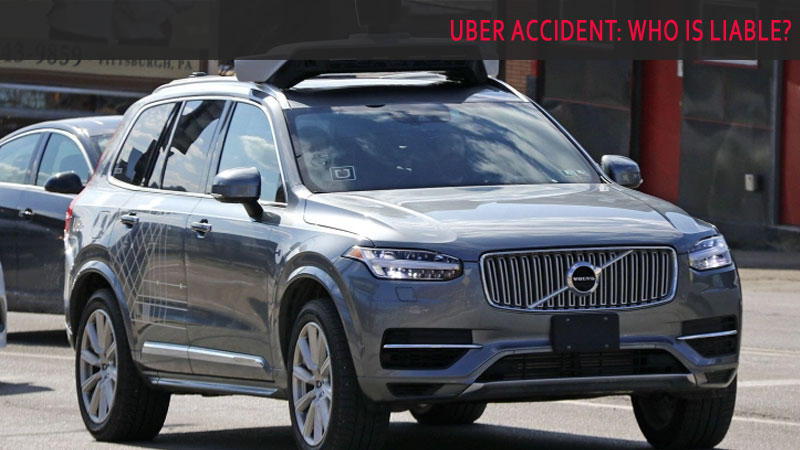Uber Accident: Who is liable?
 With the convenience and popularity of peer-to-peer ridesharing services like Uber and Lyft, there is a very good chance you have experience more than one ride – or at the very least, we all have that one friend who rarely drives anymore and does nothing but sing the praises of Uber because of the ease and safety.
With the convenience and popularity of peer-to-peer ridesharing services like Uber and Lyft, there is a very good chance you have experience more than one ride – or at the very least, we all have that one friend who rarely drives anymore and does nothing but sing the praises of Uber because of the ease and safety.
Or, as a frequent rider, you may have shared a horror story of untimeliness, getting lost or even reckless driving.
Company spokespersons say all drivers must undergo background checks and drivers who demonstrate patterns of unsafe behavior will no longer be able to drive for Uber or Lyft.
Even so, vehicle accidents can and do happen. For those who use ridesharing companies like Uber, it is important to know what to do if you are ever in an accident, understand who is at fault in the event of a ridesharing crash, and how to receive payment for any injuries or other losses you sustain.
Understanding Coverage:
Uber, for example, has a three-part insurance structure to cover their drivers and passengers. When the drivers are not available to pick up passengers, they’re covered by their own personal auto insurance. When drivers are available but haven’t yet picked up a passenger, they’re covered by their own personal insurance plus additional contingent liability coverage. That coverage goes up to $50,000 per injury for a total of $100,000 and up to $25,000 in property damage, if the driver’s personal insurance doesn’t cover the issue. Finally, drivers who are on a trip with a passenger are covered by a $1 million liability coverage policy and a $1 million uninsured/underinsured coverage policy in case of accidents with un- or underinsured drivers.
So you’re covered, right?
The answer is … maybe.
The biggest question: who pays for damages after a ridesharing accident?
Peer-to-peer ridesharing companies are a relatively new service. Uber, for example, started in 2009 and when it comes to liability and financial responsibility for Uber accidents, insurance policy protocols and legislation are still in the Wild West, so to speak.
If you are a passenger in an Uber and become injured in a car accident, their insurance theoretically covers this up to $1 million. It theoretically covers the passenger’s injuries, even if the other driver caused the crash and the other driver didn’t have insurance. However, Uber maintains that you cannot sue the company for damage that exceeds $1 million even if the Uber driver was reckless or negligent. In other words, you can’t claim damages from Uber in court if your driver turned out to be drunk and crashed. You could sue the driver, but the driver is unlikely to be able to pay much by way of damages.
Uber classifies its drivers as independent contractors, or third-party service providers. In other words, they’re not Uber’s employees.
That being said, the outcome is dependent on Uber’s own classification of its drivers as independent contractors. A lawsuit may result in a decision that Uber’s drivers are actually its employees, meaning that Uber would be liable for their actions.
Or not.
Legislation regarding accident liability for peer-to-peer transportation services is currently under development and we will likely see many changes as legislators iron out the rules in the next several years.
If you find yourself in an accident while riding with Uber, treat it the same as if you were a passenger in a private vehicle with a friend or someone you know – call 911 if necessary and seek medical attention as quickly as possible.
If you do not think your injuries are serious at the time, and as with any car accident, it is a good idea to seek a medical evaluation to rule out any internal injuries, as well as to protect you legally if an in injury comes up later.
If possible, use your phone to snap photos and videos of the crash scene and of the damaged cars. It is also a good idea to jot down as much information as you can, including:
- Your driver’s name and information
- Any other involved parties’ names, contact information, and insurance information
- The contact information for any bystanders who saw the crash
If issues arise when you file a claim, the information that you collect can be very helpful in proving your case. Contact a car accident lawyer today for more information if you think you may have a case.